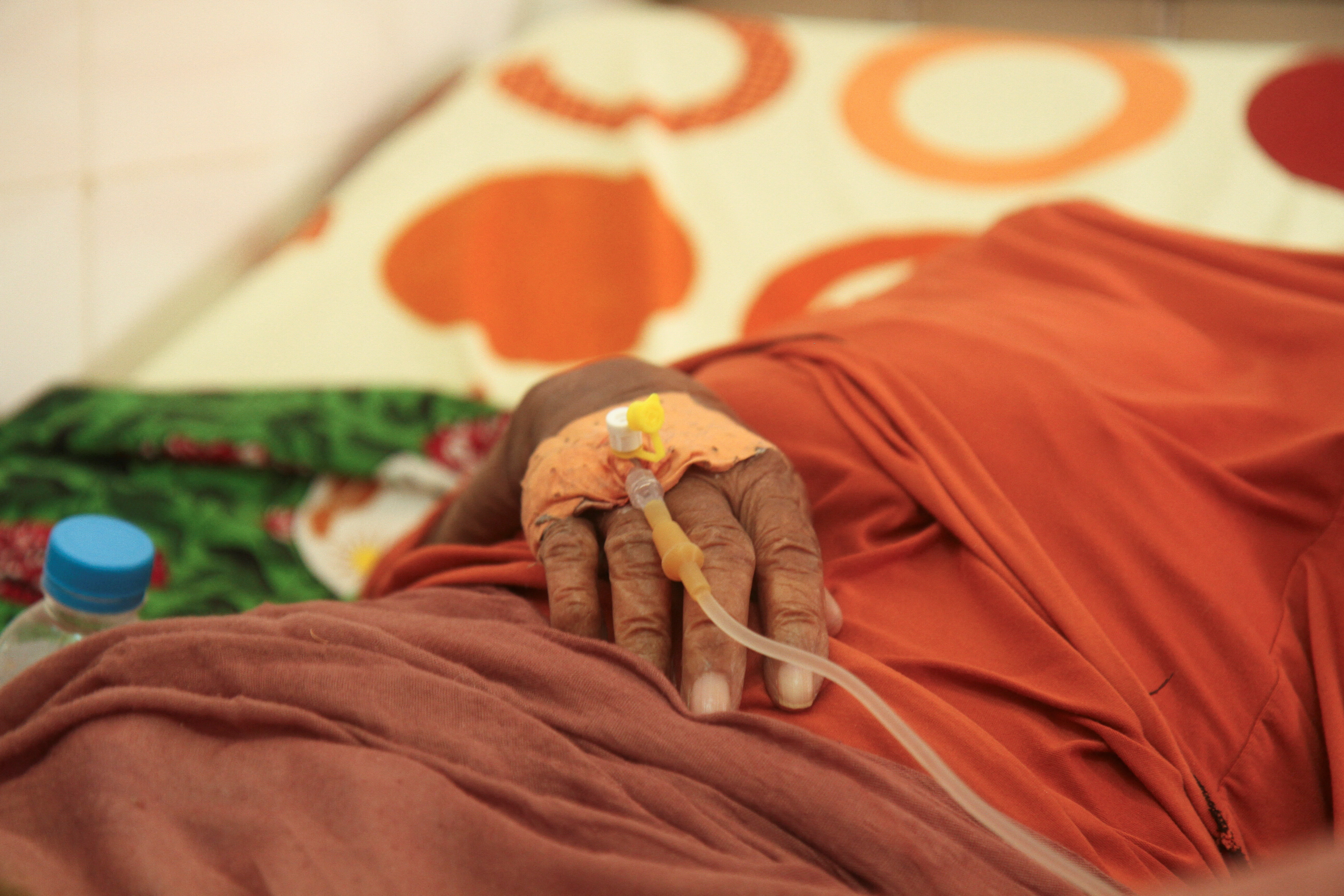COVID-19: What you need to know about the coronavirus pandemic on 30 April

A couple wearing face masks enjoy the view of the sunset, amid the spread of the coronavirus disease (COVID-19), in Seoul, South Korea, April 27, 2020.
Image: REUTERS/Heo Ran

Explore and monitor how COVID-19 is affecting economies, industries and global issues
Stay up to date:
COVID-19
- This daily roundup brings you a selection of the latest news updates on the COVID-19 coronavirus pandemic, as well as tips and tools to help you stay informed and protected.
- Today's big stories: South Korea reports no new domestic infections; US economy shrinks while the number of unemployed rises; and UK death toll rises to second-highest in Europe.
What is the World Economic Forum doing about the coronavirus outbreak?
1. How COVID-19 is affecting the globe
- Confirmed cases of coronavirus have risen to nearly 3.2 million worldwide, according to the latest figures from Johns Hopkins University. Over 220,000 people are known to have died from the virus. More than 980,000 have recovered.
- South Korea reported no new domestic coronavirus cases for the first time since February.
- The US economy contracted by 4.8% in first quarter of the year, the fastest decline since 2008.
- UK death toll topped 26,000, the second highest in Europe.
- More than 30 million in the US have applied for unemployment in just 6 weeks.
Sweden's approach to COVID-19, has not closed down restaurants or bars. However, its combination of strategic controls and trust in the public could be a model for other countries looking to shape a new normal in the months ahead.
The major difference in Sweden’s approach is trust, said Michael J. Ryan, Chief Executive Director of the World Health Organization (WHO) Health Emergencies Programme at a briefing Wednesday.
“What it has done differently is it is very much relying on its relationship with its citizenry,” said Ryan. “It really, really has trusted its own communities to implement that physical distance.”
Accept our marketing cookies to access this content.
These cookies are currently disabled in your browser.
Those with health emergencies are staying away from hospitals during the coronavirus crisis, putting lives at risk. The number of people seeking attention for suspected heart attacks in the UK has halved since March and similar drops in those seeking medical assistance have been seen in Northern Ireland, Spain and the US.

4. How an entrepreneurial approach can help end the COVID-19 crisis
Battling coronavirus will take a will to experiment across sectors, according to two professors of innovation. The experts explained how some large firms have repurposed their manufacturing processes, moving from paints to hand sanitizers or from automobiles to ventilators. "More innovation and greater scale is needed."
Don't miss any update on this topic
Create a free account and access your personalized content collection with our latest publications and analyses.
License and Republishing
World Economic Forum articles may be republished in accordance with the Creative Commons Attribution-NonCommercial-NoDerivatives 4.0 International Public License, and in accordance with our Terms of Use.
The views expressed in this article are those of the author alone and not the World Economic Forum.
Forum Stories newsletter
Bringing you weekly curated insights and analysis on the global issues that matter.
More on Health and Healthcare SystemsSee all
James See
November 7, 2025
Shyam Bishen
November 5, 2025
Naveena Nekkalapudi
October 31, 2025
Mariam Adebayo
October 30, 2025
Alexandros Pantalis
October 30, 2025





